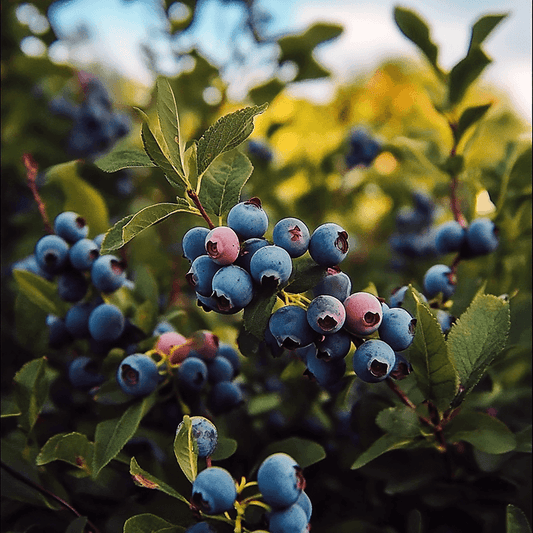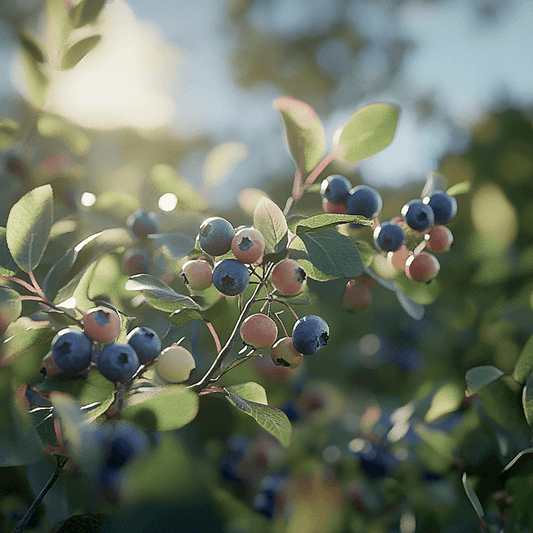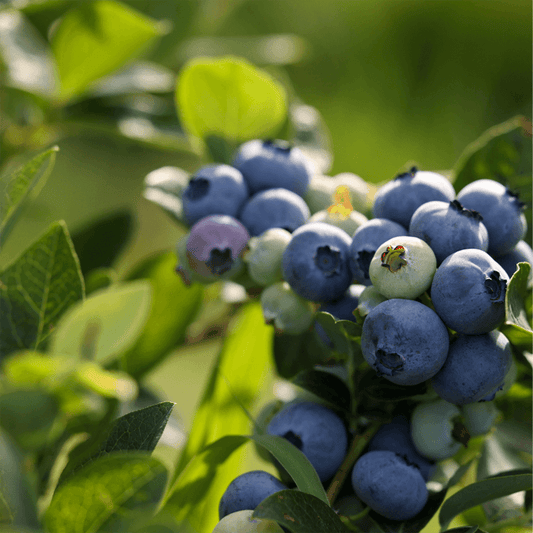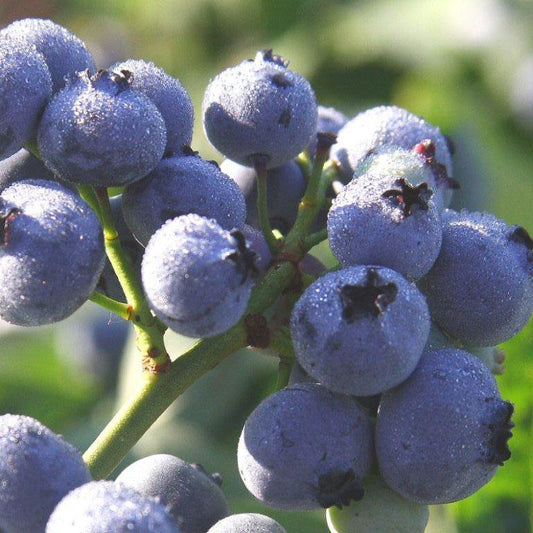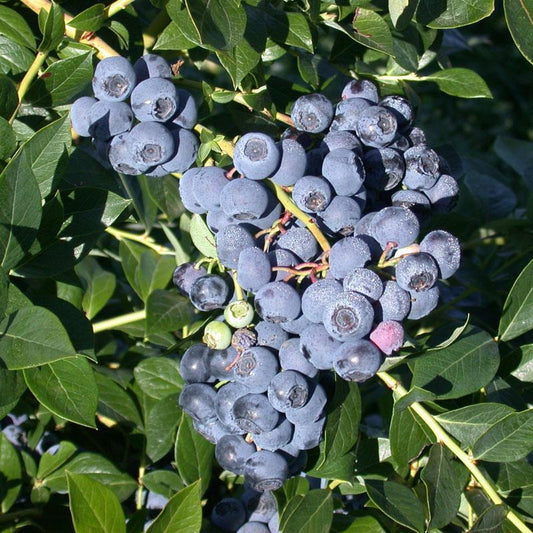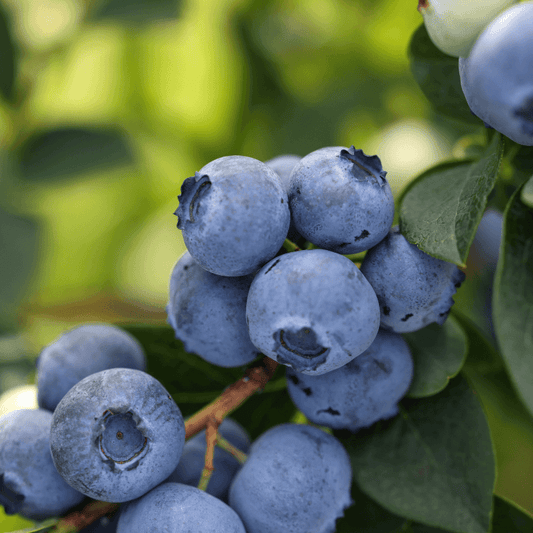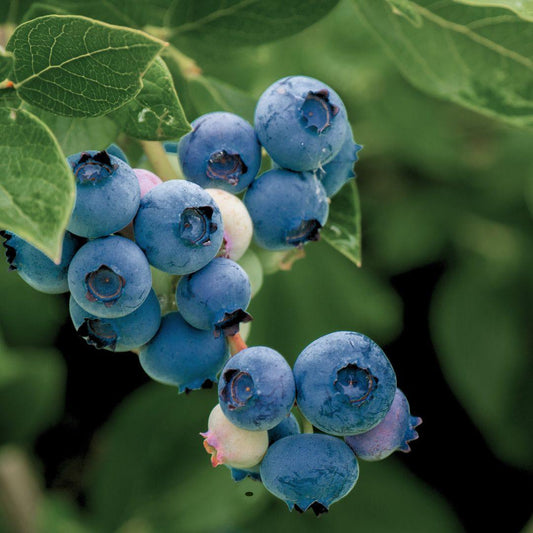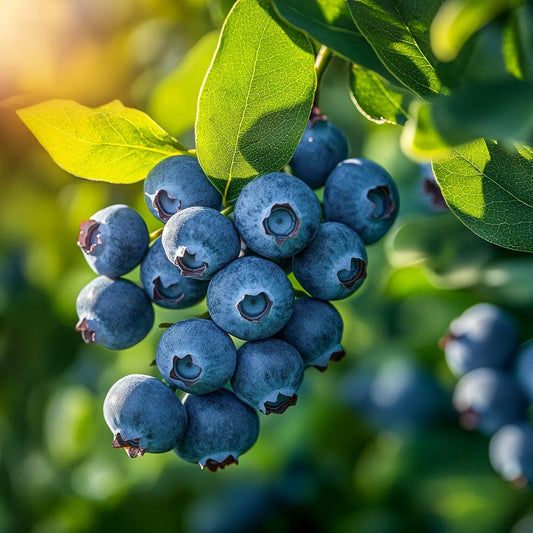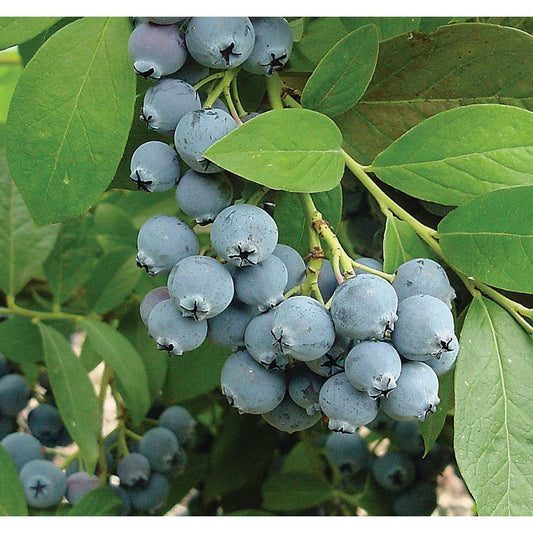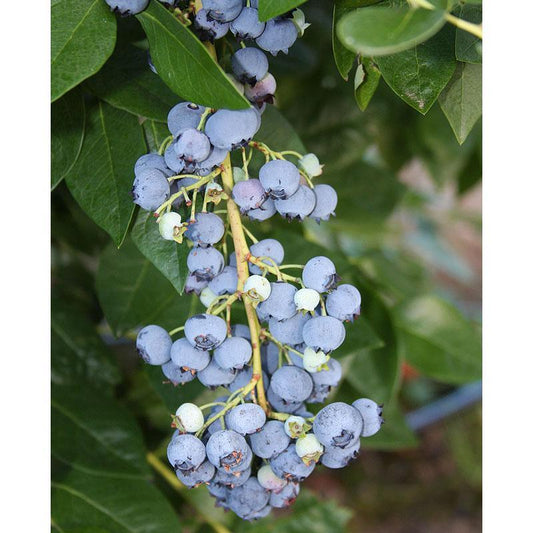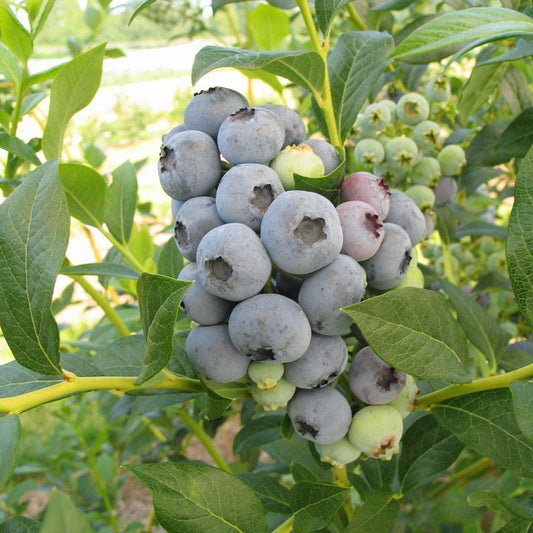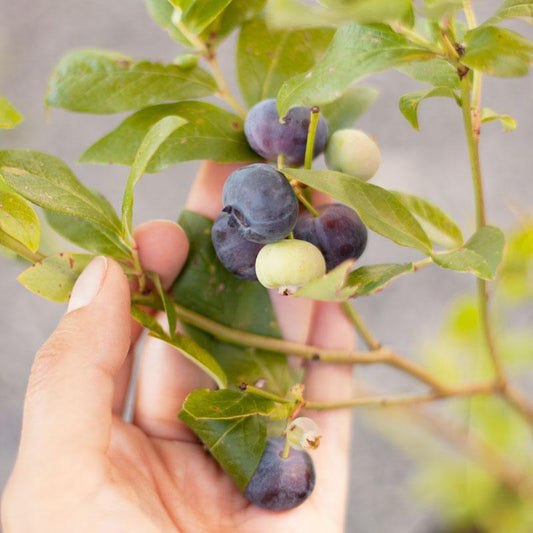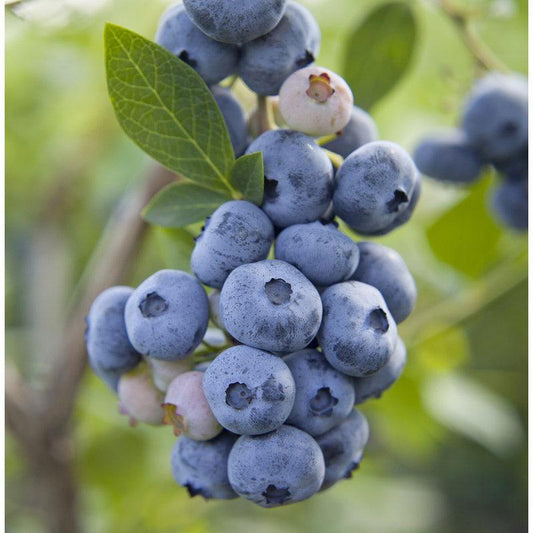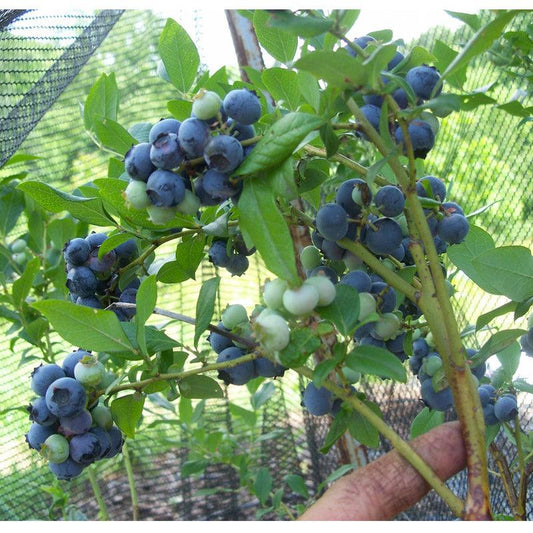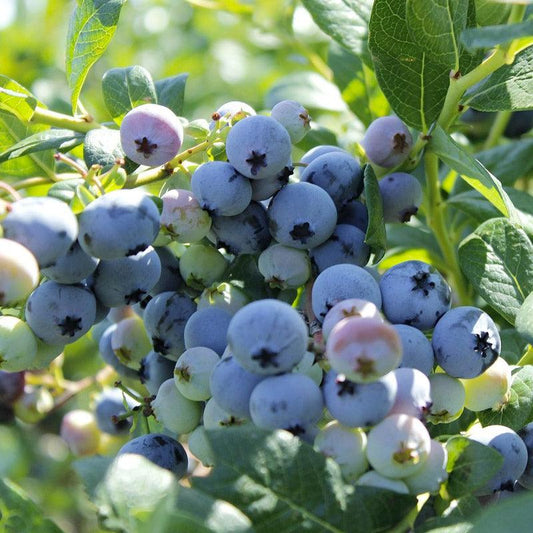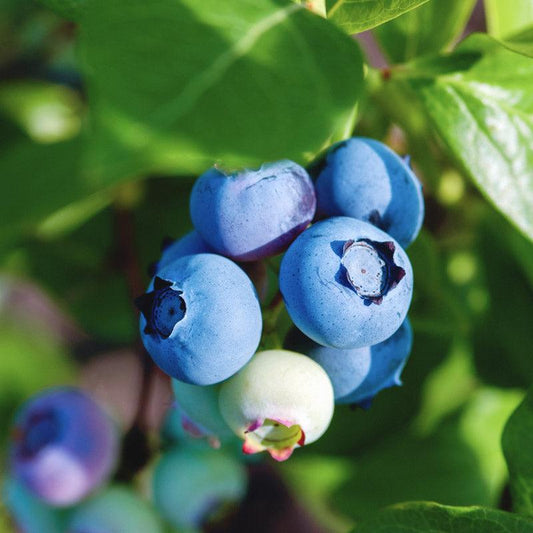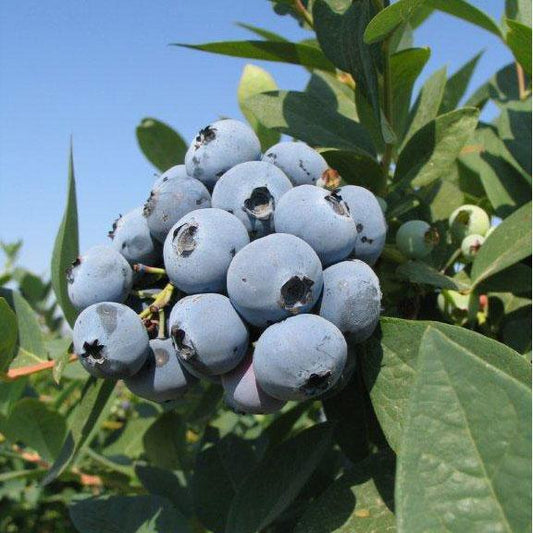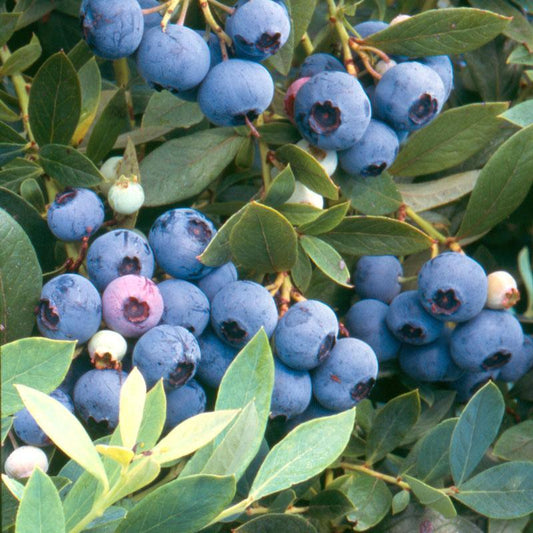At GrowOrganic, we offer a wide selection of blueberry bushes, including both organic blueberry bushes and popular non-organic varieties. Our nursery stock includes certified organic, organic non GMO heirloom blueberry plants, and classic high-yield varieties that are easy to grow.
Whether you are planting in a home garden, starting a berry garden, or planning to grow your own organic blueberry farm, we provide healthy, vigorous plants. With the right care, your bushes will reward you with years of fresh fruit, beautiful blossoms, and stunning fall colors—making them excellent for edible landscaping as well as food production.
Why Choose Our Blueberry Plants
- Wide range of blueberry plant varieties for all climates
- Strong root systems that establish well in soil and containers
- Excellent for cross pollination, which improves yields
- Suitable for both backyard berry plants and larger orchards of fruit trees
- Carefully selected for high yields, flavor, and heat tolerance
Gardeners from across the country—customers from all across America—choose our nursery for high-quality bushes. Whether you’re looking for early, mid, or late-season harvests, we have the right varieties for you.
Planting Blueberries
Planting blueberries is simple when you prepare your site properly. Blueberries are acid loving plants that thrive in acidic soil with good drainage. Before you plant your blueberry bush, improve the soil with Acid Mix 4-3-6 and Espoma Organic Peat Moss. These amendments help maintain the right pH and moisture balance.
When planting:
- Choose a location with full sun for the best production.
- Water regularly to support developing fruit buds.
- Apply mulch to keep soil cool and protect the root system.
- Plant multiple blueberry plant varieties nearby for strong cross pollination.
For step-by-step instructions, visit our guide: Planting Blueberries.
Best Time to Plant
The best time to plant is early spring in most regions. In warmer climates, you can also plant in fall so the bushes have time to build strong roots before summer. If you live in a colder area, wait until the soil is workable and frost danger has passed.
Learn more about fall planting of blueberries.
Choosing Blueberry Varieties
Not all blueberry plants are the same. Choosing the right type ensures success in your climate.
For a detailed breakdown of different types, see our Comprehensive Guide to Blueberry Varieties.
Seasonal Care and Maintenance
Caring for blueberries throughout the growing season is key to getting big, sweet harvests.
- Fertilize in spring with organic products like Acid Mix 4-3-6.
- Prune in late winter or early spring to encourage new growth (How to Prune Blueberries).
- Mulch with peat moss or pine needles to maintain acidic soil.
- Water consistently, especially when berries and fruit buds are forming.
- Plant different harvest times to extend your blueberry harvest.
If you notice leaf problems, visit Blueberries with Yellowing Leaves for solutions.
Growing Blueberries at Home
Adding blueberries to your garden brings beauty and delicious rewards. These bushes are:
- Attractive in bloom and fruit, ideal for edible landscaping
- A favorite for summer blueberry picking in your backyard berry plants patch
- Suitable for containers, raised beds, or mixed with other fruit trees
- Reliable producers of fresh organic berry harvests when grown as certified organic plants
By growing different blueberry plant varieties, you can enjoy fruit all summer long. With care, you’ll have enough berries for fresh eating, freezing, and baking.
Explore recipes like Blueberry Oat Muffins or festive Red, White, and Blueberry Desserts.
Container and Small-Space Growing
Don’t have room for a large berry garden? You can still enjoy fresh berries with container planting. Blueberries adapt well to pots, as long as the soil remains acidic and well-drained. Use peat moss and organic fertilizer to maintain balance.
Learn how in Growing Blueberries in Containers.
Harvesting and Storing
When berries are plump and fully colored, it’s time for pick your own blueberry fun. Wait a few extra days after they turn blue for the sweetest flavor.
Tips for harvesting:
- Pick in the morning when berries are cool.
- Store in the refrigerator for up to a week.
- Freeze extras for long-term storage.
Get more advice in our Harvesting and Storing Guide.
Learn More
Blueberries are one of the most rewarding acid loving plants to grow. With the right soil, sun, and care, they’ll provide decades of harvests.
Explore more helpful resources:
Start Your Blueberry Patch Today
From organic blueberry bushes to classic highbush blueberries, our plants are strong, productive, and ready for your garden. If you want fresh berries, we can help. Whether you need them for your table, a home garden project, or to start an organic blueberry farm, we have what you need.
Shop our blueberry bushes today and enjoy the sweetness of fresh, homegrown blueberries for years to come.
 Sold out
Sold out Sold out
Sold out Sold out
Sold out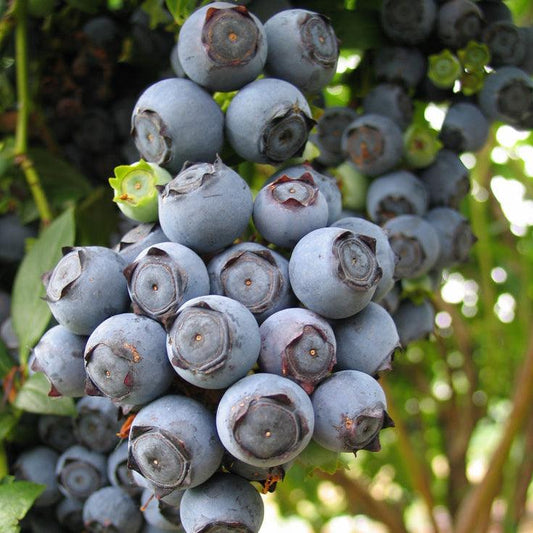 Sold out
Sold out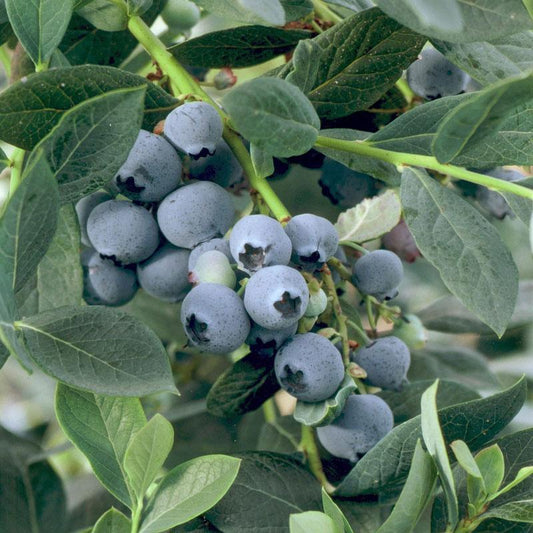 Sold out
Sold out




